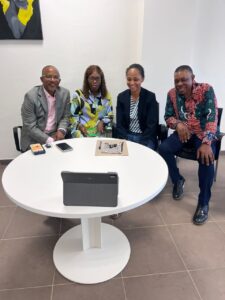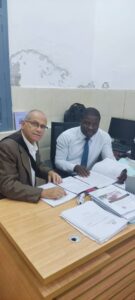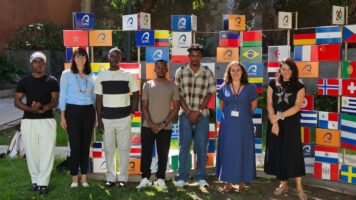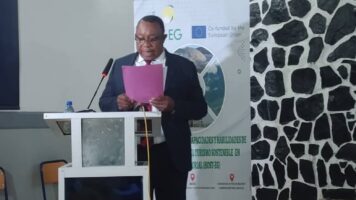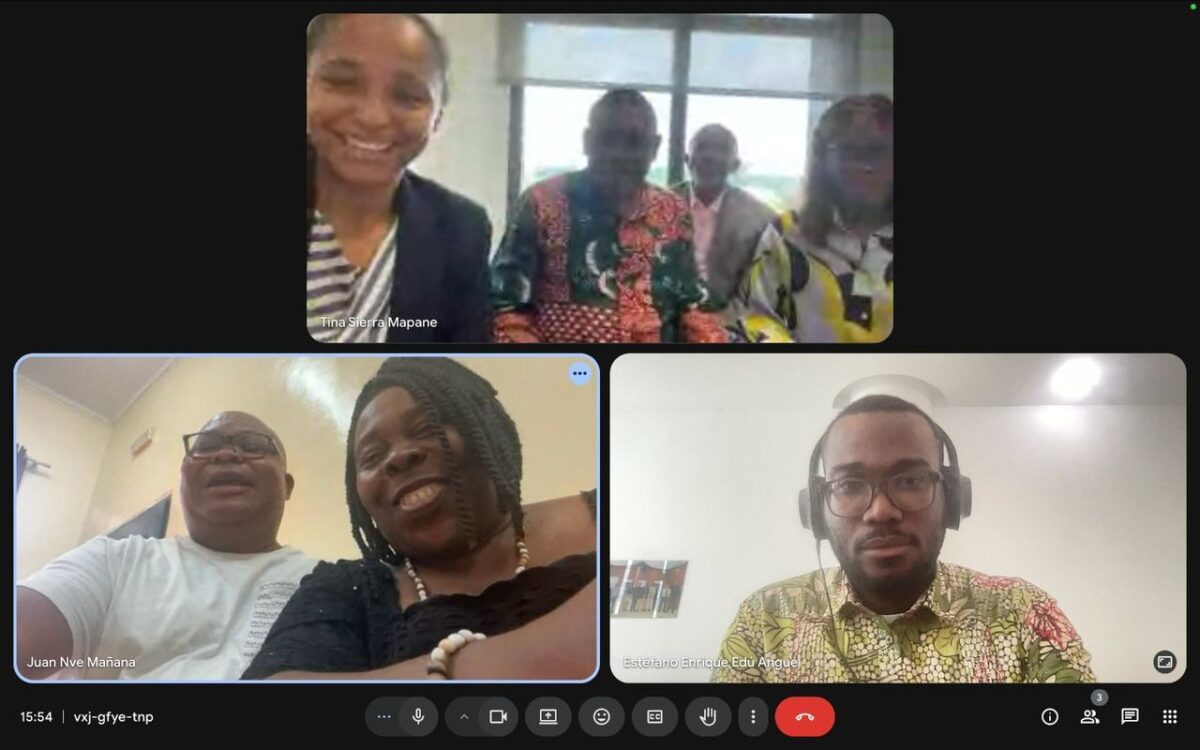The HOST-EG project team has launched the final operational work package of the programme, focused on promoting sustainable tourism in Equatorial Guinea through the strategic role of higher education. Task 4.1, which forms the basis of this deliverable, involves the creation of three thematic round tables addressing the main impacts of tourism from a triple perspective: social, environmental, and economic.
These round tables bring together experts and representatives from the academic and social spheres with the goal of exchanging ideas, analyzing challenges, and proposing concrete actions to advance sustainable tourism in the country. Although the distance and transport difficulties between the two national universities have limited in-person meetings, the spirit of equality and participation —the traditional hallmark of round tables— has remained a core principle of this collaborative process.
A Participatory and Multidisciplinary Approach
Tourism, as a global phenomenon, has a strong impact on the communities, economies, and ecosystems where it develops. Aware of this, the universities participating in HOST-EG —the National University of Equatorial Guinea (UNGE), the Afro-American University of Central Africa (AAUCA), the University of Las Palmas de Gran Canaria (ULPGC), and the University of Madeira (UMA)— agreed to create three discussion spaces dedicated respectively to the social, environmental, and economic impacts of sustainable tourism.
During the meeting held on 24 April 2025, teams from the four universities defined the structure and objectives of this task, as well as the participant profiles and the expected content of the final reports. Discussions continued throughout May and June 2025 through both in-person and virtual meetings between the project coordinators and the leaders of each round table.
Structure of the Round Tables
Each round table is co-led by two coordinators, one from UNGE and another from AAUCA, ensuring institutional and territorial balance. Their role is to facilitate the sessions, gather contributions, and systematize results without assuming hierarchical authority, in line with the project’s participatory philosophy.
It was recommended that each group should consist of between 5 and 9 members, mainly from the two Equatorial Guinean universities, along with external representatives from public administration or non-governmental organizations connected to academia or tourism.
Objectives and Methodology
The purpose of the round tables is to identify concrete actions that will position Equatorial Guinean universities as key references in sustainable tourism within the country. The proposed initiatives must combine creativity and feasibility, drawing inspiration from European experiences within HOST-EG while prioritizing local contributions.
Each proposed activity or initiative is assessed according to its ease of implementation (on a scale from 1 to 5) and its estimated timeframe for execution. The working sessions were held both in person —within each university— and virtually between institutions, due to geographical distance. These were complemented by asynchronous collaboration and the joint drafting of report outlines. Finally, a process of editing and harmonization was carried out, respecting the specific nature of each group’s contributions.
Advancing Towards a University Model Committed to Sustainability
Through this activity, HOST-EG takes a decisive step towards consolidating a university model committed to the sustainable development of tourism in Equatorial Guinea. This participatory approach not only strengthens cooperation between national and European universities but also contributes to enhancing the role of higher education as a driver of social and environmental transformation in the country.
The HOST-EG Project (“Fostering Sustainable Growth and Employment by Building Higher Education Capacities in Hospitality and Tourism Management in Equatorial Guinea”) is co-funded by the European Union’s Erasmus+ Programme and brings together four universities: UNGE, AAUCA, ULPGC, and UMa. Its goal is to strengthen higher education capacities and promote innovation, sustainability, and entrepreneurship in the field of tourism in Equatorial Guinea.
